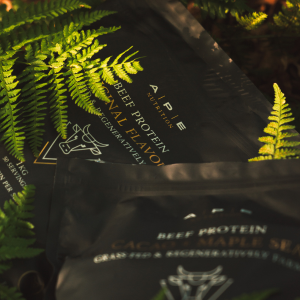There are a huge number of cooking oils available these days and the majority of them come in packaging that make them appear healthy. I genuinely feel sad that people all over the world are purchasing margarine instead of butter thinking they're opting for the healthier choice because of the lower saturated fat content. In truth margarine is extremely processed and highly inflammatory to the body. Fats such as this are the ones that have given fat in general it's bad name, linking it to Heart Disease and obesity. In actual fact, oils high in saturated fat, such as grass-fed butter are actually amazing healthy sources of fat, packed with nutrients and anti-inflammatory omega 3s.
In this article I'm going to set the record straight, listing the main oils to avoid, the best oils for cooking and other healthy oils that are great when consumed raw.
Oils to Avoid
Margarine and other vegetable oils such as; canola, soybean, corn, sunflower, safflower, peanut, cottonseed) are high in polyunsaturated fats and unstable when heated. When cooked with, they go rancid / oxidise, which causes oxidative stress in the body.
Usually these oils are heated during production, therefore they'll already be oxidised sat on the shelf in the supermarket (so leave them there!)
In addition to this, these oils are usually high in trans fats and omega 6. When we overly consume omega 6 in relation to omega 3, this throws our omega 3:6 ratio out of balance, which is highly inflammatory to the body.
You can spot these unhealthy oils easily, as they are usually liquid at room temperature.
Bottom line: avoid these oils as much as possible!
Dressing Oils
MCT and olive oil are great, nutrient rich food sources when they come from proper organic farming practises. However, they don't respond great to heat so are best for dressing salads / eating raw.
As a side note, MCT oil is great for adding to coffee because it binds with caffeine to slow down absorption, creating a time released energy effect. It's also rapidly processed by the body to create energy in the form of ketones. If you're interested in trying our Organic MCT Oil, you can find it here.
MCT Oil isn't great for cooking because it has a low smoke point, however due to the fact it oxidises at high heats, it can be added to coffee or other hot drinks.
The Best Cooking Oils
For cooking, you're better opting for animal fats such as; butter, ghee and beef tallow or coconut / avocado oil.
These are much more heat resistant and in addition to that, the animal fats are rich in fat soluble vitamins: A, D, E and K. Quality sources of animal fat are also higher in omega-3, which helps with the ratio I outlined earlier and therefore have an anti-inflammatory affect on the body.
You can spot these healthy oils easily, as they are usually solid at room temperature.
*As with everything we recommend, it’s best to opt for organic in relation to coconut, MCT, olive and avocado oil. For the animal fats (butter and beef tallow) it’s ideal to get grass-fed.
Let me know if you have any questions in the comments below.
Thanks,
Josh






